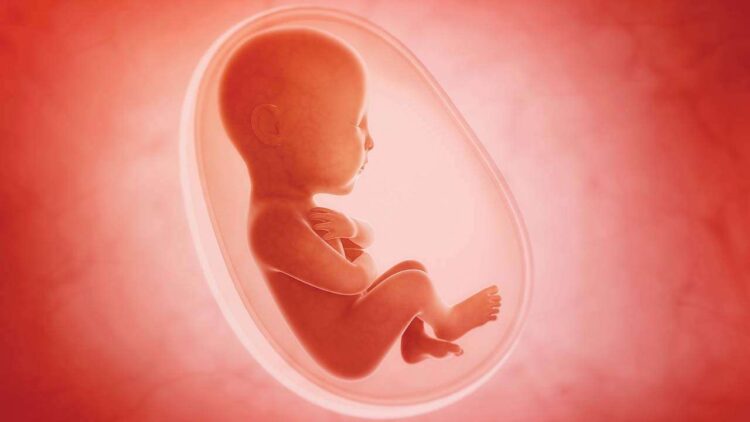Abortion is the removal of a foetus from the womb; either by consuming certain drugs or by emptying the womb through the process of suction. This ethical issue is continuously debated around the world where some people edge towards pro-life and others pro-choice however Islam has its own ruling on this Issue. There have been slightly different opinions but on the whole there is a specific stance on abortion.
Firstly, Islam regards human life as sacred, this sanctity applies not only to life, but to the human body as well. Hence, the physical body of a human after death is just as sacred as it was before death however the degree of sanctity of life is greater than that of the body alone.
The Shari’ah ruling on abortion:
Abortion can be divided into two stages:
- Abortion prior to the entry of the soul in to the foetus
- Abortion after the soul enters the foetus
Before mentioning the ruling on abortion with regards to these two stages, it must be remembered here, that according to Shari’ah, the Ruh enters the foetus at 120 days from conception.
The Jurists have based this duration upon a Qur’anic verse and a Hadith. Allah Almighty says:
“And verily we did create man from a quintessence (of clay). Then we placed him (as a drop of sperm) in a place of rest, firmly fixed. Then we made the sperm into a clot of congealed blood. Then of that clot we made a (foetus) lump. Then we made out of that lump bones and clothed the bones with flesh. Then we developed out of it another creature (by breathing life into it). So blessed be Allah, the most marvellous creator”
Surah al-Mu’minun, 12/13/14
In a Sahih Hadith the Messenger of Allah ﷺ discussed in detail the periods elapsing between these stages (in the Qur’an).
Abdullah ibn Mas’ud رضي الله عنه narrates that the Messenger of Allah ﷺ said:
“The seed of one of you remains in the womb of the mother for forty days in the form of a Nutfa (sperm). Then it remains like a clot for another forty days, and then for a same number of days like a lump of flesh (when the formation of the limbs and the growth of the bones begin)
Sahih al-Bukhari
Therefore, the soul enters the foetus at 120 days (4 months). Now let’s look at the ruling.
Abortion prior to the entry of the soul in to the foetus
According to a consensus of Muslim scholars, it is unlawful to abort the pregnancy.
The reason why abortion prior to the soul entering the body will not be permitted is that, although there may not be life in the foetus, the foetus is still considered to be part and parcel of the mother’s body. Thus, just as one’s very own life and body are trust given by the Almighty Creator, the foetus is also a trust given to the mother by Allah, and she will not have a right to abort it.
However, in certain extreme circumstances, it may be permitted to abort the pregnancy such as: when the woman conceives after being raped, the mother’s life or health is in danger, or repeated pregnancies severely damage her health, etc.
“Aborting the pregnancy will be permissible due to a valid reason, provided the soul has not yet entered the foetus.”
Imam al-Haskafi in Durr al-Mukhtar:
It should be stated here that pregnancy due to unlawful/illegal sex is no reason for abortion. The embryonic life-form in the mother’s womb is honoured and sacred even though it is a result of adultery or fornication.
Abortion after the soul has entered into the foetus.
This is totally impermissible and is equivalent to murder, as it results in the taking out of an innocent life. All Muslim scholars have unanimously condemned this act.
Imam Ibn Taymiyah states:
“Aborting a foetus has been declared unlawful with the consensus of all the Muslim scholars. It is similar to burying an infant alive as referred to by Allah Almighty in the verse of the Qur’an: “And when the female infant, buried alive, will be asked as to what crime she was killed for” [Surah al-Takwir, 8] (Fatawa Ibn Tamiyya, 4/217).
However, some contemporary scholars have given a dispensation to abort the pregnancy after 120 days, in the situation where the life of the mother is in certain and absolute danger. This is based on the Juristic principle stated in the books of Usul al-Fiqh:
“If one is overtaken by two evils, one should choose the lesser of the two” (al-Ashbah wa al-Naza’ir, P.98)
They state that the mother’s life should be saved and the foetus aborted, as the mother is established in life, with duties and responsibilities, whereas the unborn child is still in the mother’s womb. But it should be remembered that the mother’s life must be in certain danger, and that this should be advised by a qualified and experienced Muslim doctor.
Aborting before 120 days is sinful, but at a less extent than after 120 days. It would not be regarded as murder, rather violating the rights of a human organ entrusted to the mother by Allah Almighty.
Of course, the reality of Abortion is more than just the Fiqhi stance. Muslims should seek out counselling, speak to their Dr, Muslim scholars and those of understanding.
Shaykh Hamza Yusuf shares an interesting stance on when the Ruh enters the body, which sometimes begs the question of re-looking the fiqh surrounding abortion.
